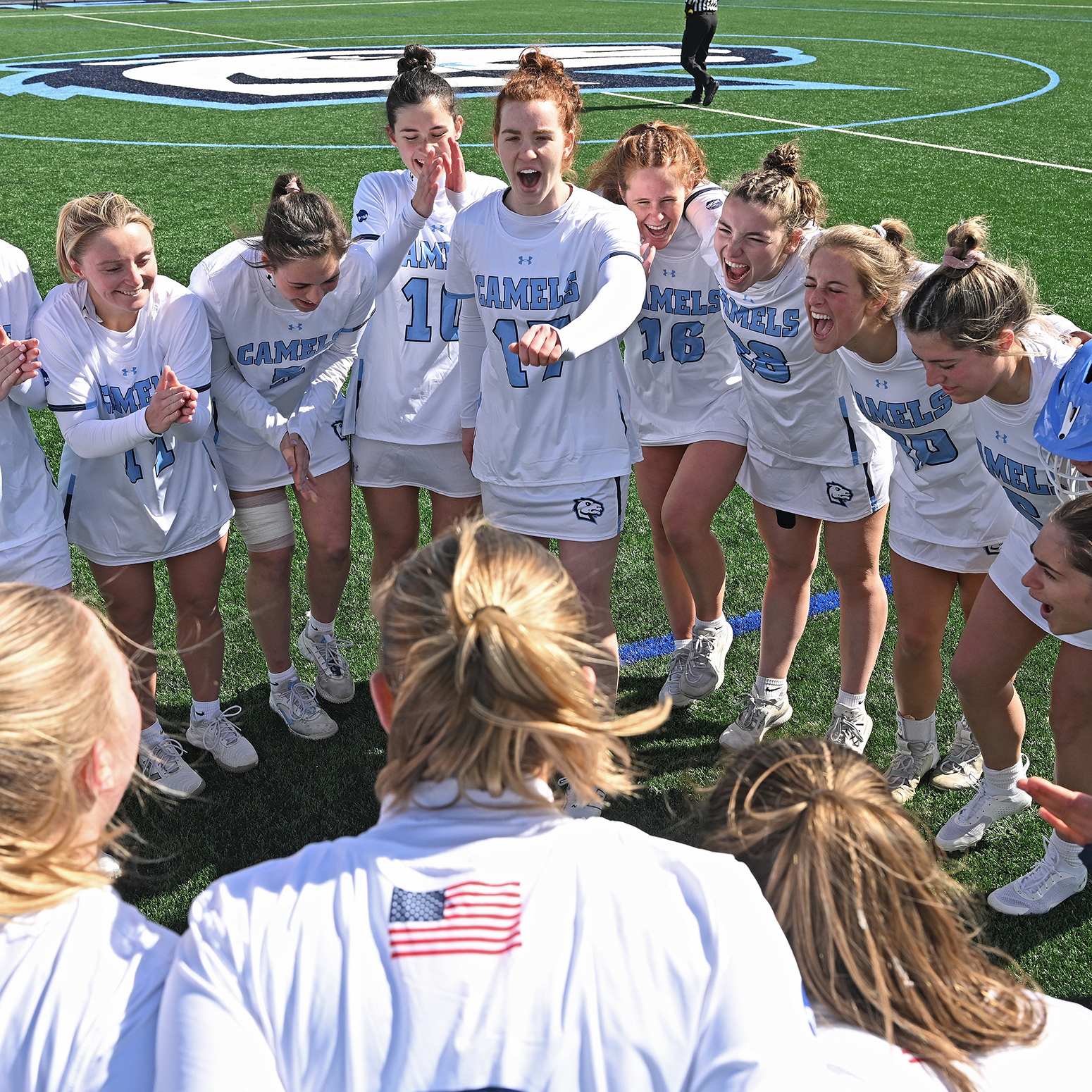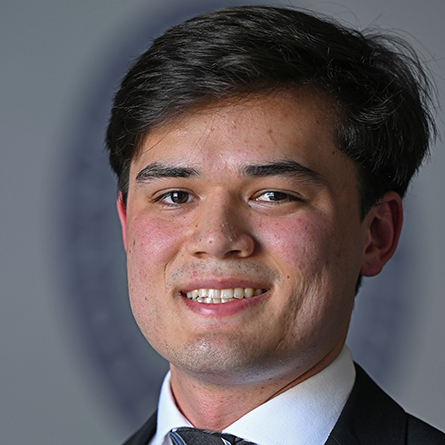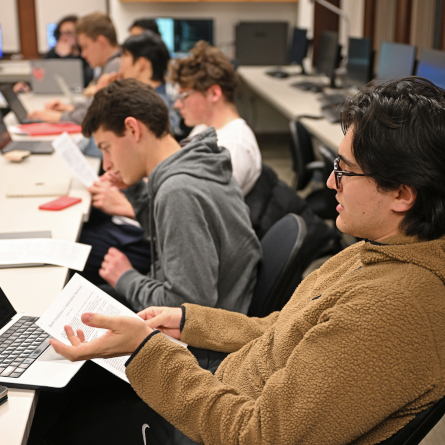
Matthew Yamamoto ’23 wins the 2023 Oakes and Louise Ames Prize
Matthew Hiroshi Yamamoto, a botany major and music minor, is awarded the 2023 Oakes and Louise Ames Prize for his honors thesis, “Comparing Long-term Patterns of Spread of Native and Invasive Plants in a Successional Forest.” Yamamoto’s work uses advanced statistical analysis to study the patterns of spread for native and invasive (or non-native) plants over 70 years and draw important conclusions about invasive plant ecology.
Named for the late president emeritus of the College and his wife, the Oakes and Louise Ames Prize is given to a graduating senior who has completed the year’s most outstanding honors study. The prize is offered by the trustees in recognition of the quality of academic achievement that Oakes and Louise Ames fostered during their 14 years of service to Connecticut College.
The first study directly comparing patterns of spread of native and invasive species in a developing forest, Yamamoto’s research draws on a large long-term dataset recording the presence of specific plant species on permanently established plots within an unmanaged tract of land in the Connecticut College Arboretum. His thesis explores the relationships among the different variables that characterize each site, including soil quality, tree abundance, distance from trails or roads and light level, and the number of invasive versus native plants found there over time.
One of Yamamoto’s overarching conclusions is that invasive plants appear to behave much like native plants in terms of how they colonize a new area, despite a common theory among scientists that invasive plants are fundamentally different in their colonization patterns. Yamamoto found invasive plants did not appear to spread farther or occur in areas with more light than native plants, nor were they invading a wider variety of sites than native plants. Another key finding is that the initial age of a forest was the most important factor for native species and even more so for invasive species—even when controlling for factors such as light availability that vary with forest age. The study results will be submitted for publication in the journal Oecologia this summer, and Yamamoto will present his findings at the Botanical Society of America’s annual research conference in Boise, Idaho, in July.
Associate Professor of Botany and Environmental Studies Chad Jones, who served as Yamamoto’s thesis adviser and nominated him for the Ames Prize, called Yamamoto’s work “the best conceived and executed undergraduate thesis that I have ever read,” adding that it demonstrates Yamamoto’s superior ability and skills throughout the entire scientific process, including hypothesis development, data collection, analysis and interpretation.
“Forests are not as resistant to invasion as previously thought, and this research contains significant results that will help us better understand how and why invasive species are spreading in northeastern forests,” Jones said.

